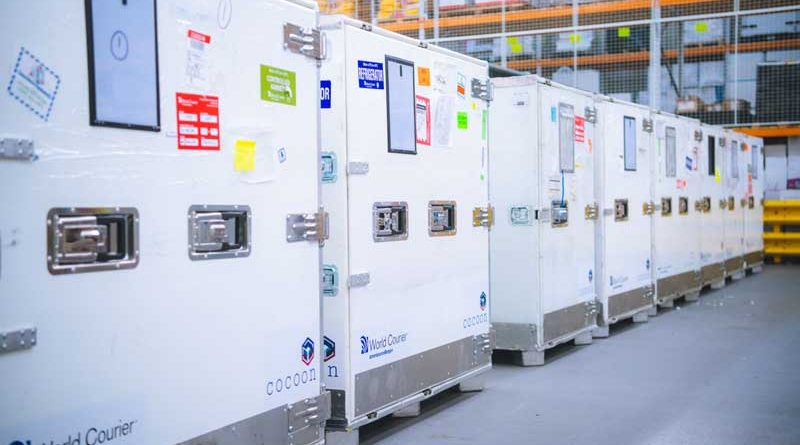Transporting adhesives in a sustainable way
Many high-tech adhesives have to be transported frozen or refrigerated, which often requires the use of environmentally unsustainable materials such as dry ice and polystyrene. To respond to this problem, DELO has been using World Courier’s Cocoons units since 2018: these are special containers that can be used for years, made from a composite of fibreglass and vacuum panels.
Since 2018, DELO has saved 3,200 tons of carbon dioxide with a new solution for shipping adhesives. This was achieved with shipping containers that work according to the thermos flask principle.
Adhesives enable lightweight design and resource-saving miniaturization. For technical reasons, many high-tech adhesives have to be transported refrigerated or frozen. Due to the required cooling capacity, frozen adhesives are to a large extent transported in Styrofoam boxes filled with dry ice.
Special shipping containers
In order to reduce its global carbon footprint, DELO has increasingly been using so-called Cocoons units from the logistics service provider World Courier for intercontinental transports since 2018. These are special shipping containers that can be used for years and are made of a fibre glass composite and vacuum panels, among other materials.
Thanks to their high-performance insulation, a significantly lower cooling capacity is sufficient compared to Styrofoam boxes, which is why reusable cold packs are used instead of dry ice. In addition, the elimination of the hazardous material dry ice – frozen carbon dioxide – makes transport easier and improves occupational safety for all employees along the transport chain.
Less packaging material
Thanks to this new logistics solution, DELO has saved more than 3,000 tons of carbon dioxide on its 429 shipments since 2018. This corresponds to the CO2 emissions of 1,250 cars with an annual mileage of 15,000 km. Another advantage of the insulated container solution is less packaging material, almost 6,000 Styrofoam boxes were saved.
Most of DELO’s high-tech adhesives are used in automotive and consumer electronics. In many cases, all that is needed is a small drop of adhesive. For example, one litre of adhesive is sufficient for 40 million RFID radio tags.

